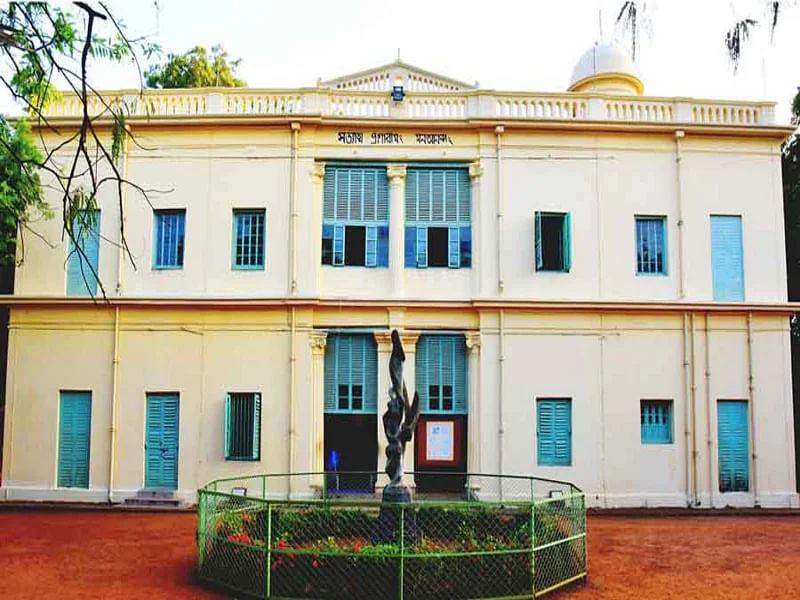M.Sc Horticulture Syllabus and Subjects

The MSc Horticulture syllabus is a two-year postgrad course that covers plant cultivation and management. It's divided into four semesters and includes topics like Orchard Management, Breeding of Horticultural Crops, and Field Study & Thesis. Graduates can find jobs in landscape design firms, fertilizer companies, and land and revenue departments.
Table of Contents
Semester Wise MSc Horticulture Syllabus
The MSc Horticulture program covers plant agriculture, including crops, fruits, vegetables, and medicinal plants. The course provides a comprehensive understanding of plant cultivation, production, management, and ornamentation. The M.Sc Ag Horticulture syllabus is organized by semester and can be found in the table below.
M.Sc Horticulture 1st Year Syllabus
The table given below represents the 1st year MSc Horticutlure syllabus:
|
Semester I |
Semester II |
|
Growth and Development of Horticultural Crops |
Protected Cultivation of Horticultural Crops |
|
Systematic Horticulture |
Spices and Plantation Crops |
|
Tropical and Dry Land Food Production |
Production Technologies of Warm Season Vegetable Crops |
|
Vegetable Crops |
Tropical and Subtropical Fruits |
MSc Horticulture 1st Year Practicals
The list given below proives the practicals in 1st year of MSc Horticulture Syllabus:
- Production Technology of Cool Season Vegetable Crops
- Production Technology of Warm Season Vegetable Crops
- Tropical and Dry Land Food Production
- Orchard Management
M.Sc Horticulture 2nd Year Syllabus
The table given below represents the 2nd year M.Sc Horticutlure syllabus:
|
Semester III |
Semester IV |
|
Laboratory Techniques, Library Information and Technical Writing |
Production & Breeding of Plantation and Medicinal Crops |
|
Temperate Fruits |
Post Harvesting Management and Processing Crops |
|
Minor Fruits |
Seminar |
|
Landscape, Gardening and Production of Plantation Crops |
Thesis |
M.Sc Horticulture 2nd Year Practicals
The list given below proives the practicals in 1st year of MSc Horticulture Syllabus:
- Laboratory Techniques, Library Information and Technical Writing
- Post harvest Technology of Horticultural Crops
- Research (Field & Laboratory)
M.Sc Horticulture Subjects
M.Sc Horticulture subjects studies the theoretical and practical aspects of topics like Systematic Horticulture, Orchard Management, Medicinal and Aromatic Plants, Breeding of Horticultural Crops, etc. The syllabus of MSc Horticulture is divided into three categories: core, elective and practicals, which are given below:
MSc Horticulture Core Subjects
In the list given below are MSc Horticulture subjects as core subjects:
- Growth and Development of Horticultural Crops
- Plant Propagation & Nursery Husbandry
- Plant Propagation
- Floriculture
- Harvest Technology
- Orchard Management
- Protected Floriculture
- Production Technology of Cool Season Vegetable Crops
- Production Technology of Warm Season Vegetable Crops
- Biotechnology of Horticultural Crops
- Propagation and Nursery Management in Horticultural Crops
MSc Horticulture Elective Subjects
In the list given below are M.Sc Horticulture subjects as elective:
- Plant Molecular Stress Physiology
- Farming systems in vegetable crops
- Environmental Horticulture
- Industrial Horticulture
MSc Horticulture Practical Subjects
In the list given below are MSc Horticulture subjects as practicals:
- Laboratory Techniques, Library Information and Technical Writing
- Post harvest Technology of Horticultural Crops
- Research (Field & Laboratory)
- Production Technology of Cool Season Vegetable Crops
- Production Technology of Warm Season Vegetable Crops
- Tropical and Dry Land Food Production
- Orchard Management
M.Sc Horticulture Subjects In Detail
Msc Horticulture Subjects deals with many topics in fruits and vegetable production, management, storage and shipment. In the table below are MSc Horticulture subjects and topics:
| M.Sc Horticulture Subjects | Topics |
| Orchard Management | Importance of orchard management, selection of site and location, planning, selection of planting material, preparation of soil, layout of pits and planting, care and protection of young plants. Water requirement of fruit trees, disorder due to excess and deficiency of moisture. |
| Minor Fruits | Importance and scope of minor fruits in India with special reference to Bundlekhand region. Practices involve in the production of Karonda, Strawberry, Bael, Jamun, Phalsa, Fig, Annona and Shahtoo. |
| Temperate Fruits | Importance and scope of temperate fruits in India. Practices involve in the production of Apple, Pear, Peach, Plum, Apricot, Cherry, Almond and Walnut. |
| Medicinal and Aromatic Plants | Importance of medicinal and aromatic plants in human health , national economy and related industries, classification of medicinal and aromatic plants according to botanical characteristics and uses. |
| Breeding of Horticulture Crops | Importance and prospects, history of crop improvement, major bottleneck in improvement of horticultural crops. Breeding of important fruit crops viz. Mango, guava, banana, citrus, aonla, grape, apple, pear. |
| Post Harvet Technology of Horticulture Crops | History, present position and future scope of fruit, vegetable and flower preservation industry in India, principles and methods of fruits and vegetables preservation, canning of important fruit and vegetables, spoilage in canned products. |
M.Sc Horticulture Course Structure
MSc Ag Horticulture syllabus structure includes the study's theory and practical paper aspects. The course structure is designed to include classroom training and practicals in the course curriculum. The course structure is given below:
- IV Semesters
- Core Subjects
- Elective Subjects
- Field Study
- Dissertation
M.Sc Horticulture Teaching Methodology and Techniques
The MSc Ag Horticulture syllabus considers different teaching methods, including industrial sessions. Practical sessions are integral to the course, as candidates must be prepared for the industry. Listed below are the teaching methodology and strategies in general:
- Practical & Laboratory sessions
- Designing cost-effective and straightforward experiments
- Guest Lectures, Seminars, and Workshop
- Group Assignment and Discussion
- Research & Development
M.Sc Horticulture Projects
Research projects in the M.Sc Horticulture syllabus help students develop practical skills and prepare for careers in the industry. Examples of project topics are included in the syllabus
- Phytoremediation of Zinc
- Study of the Effects of Green Tea on Oral Bacteria
- Sunless Sunflowers
- Characterization of Arabidopsis Mutants
- Effect of Cover Crop Growth Time on Its Effectiveness in Enhancing Plant Growth
MSc Horticulture Books
Multiple authors and publications provide MSc Horticulture books online and offline for a comprehensive understanding of the subject. The MSc Ag Horticulture syllabus includes several reference books list in the table given below:
|
Books |
Authors |
| Principles of Horticulture |
C R Adams |
| Biopesticides Handbook |
NPCS Board of Consultant and Engineer |
|
Glaustas Horticulture |
P Muthukumar and R Selvakumar |
|
Textbook of Food Science & Technology |
Avantina Sharma |
Top M.Sc Horticulture Colleges
Top Science Entrance Exams
M.Sc Horticulture Fee Structure
FAQs on M.Sc Horticulture Syllabus and Subjects
Q: What are the subjects in M.Sc Horticulture?
Q: What is the scope after M.Sc Horticulture?
Q: What is M.Sc Horticulture?
Q: What is the salary of MSC horticulture jobs in India?
























